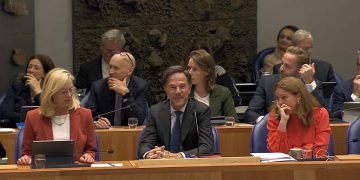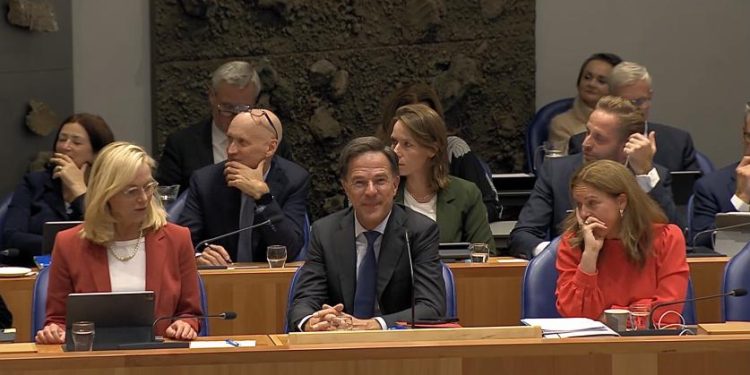NL – Once VVD parliamentarian Marielle Paul is sworn in as Minister for Primary and Secondary Education, the Dutch Cabinet will consist of more women than men for the first time ever. The caretaker Rutte IV Cabinet has a total of 29 Ministers and State Secretaries. Fifteen of them are women, NOS reports.
That puts the Netherlands among a small group of countries with a majority of women in their governments. At the start of this year, there were 13 such countries worldwide, including Spain, Rwanda, Canada, and Colombia. On average, less than a quarter of government ministers worldwide are women, according to figures from the United Nations.
When it took office, the Rutte IV Cabinet already had the most female politicians in Dutch parliamentary history. It was a goal of outgoing Prime Minister Mark Rutte. Paul is succeeding Dennis Wiersma, who stepped down after multiple accusations of inappropriate behavior. “I am very happy that she said yes, she is a very good one. She also knows the terrain well,” Rutte said on Tuesday. “And for the first time, a Council of Ministers with eleven women and only nine men. You know, we continue to look for gender parity, but only with equal suitability.”
Devika Partiman of the Stem op een Vrouw foundation, which translates to Vote for a Woman, called a female successor to Wiersma a good sign. “There is always a risk that such an almost equal distribution between men and women will not last,” she told NOS. “That after a while, it will fall into the old pattern of putting men forward for a job as Minister or State Secretary. That is not happening now.”
According to the interest group Women Inc., having more women than men in the Cabinet will have two effects. “First of all, they are an example for others. If a girl or young woman sees all those women standing on the platform, she might think: hey, that’s something for me too,” spokesperson Cecile Wansink told the broadcaster.
Second, female government members are more likely to make policies that promote gender equality, Women Inc. said. “In recent years, there have been bills on, for example, closing the wage gap and abolishing the mandatory reflection period for abortion. Proposals that were made by women and that other women have championed.”
Despite the central government’s achievement, women are still underrepresented in other levels of Dutch politics. Around 35 percent of city council members are women. And the new coalitions formed after the Provincial Council elections have the lowest number of female deputies in twelve years. The provincial governments in Zeeland and Flevoland are entirely men. “That while local and provincial politics is a breeding ground for political talent that becomes active at a national level,” Partiman said.
Female politicians also face online criticism and harassment much more than their male counterparts. Deputy Prime Minister and D66 leader Sigrid Kaag said the “hate, harassment, and threats” she faced, and its impact on her family were behind her decision to step down and leave politics.
Today, Corinne Ellemeet became the fourth prominent female politician to announce her imminent departure in two weeks. She spoke out several times about the “enormous hatred on social media” aimed at female politicians in particular.


















